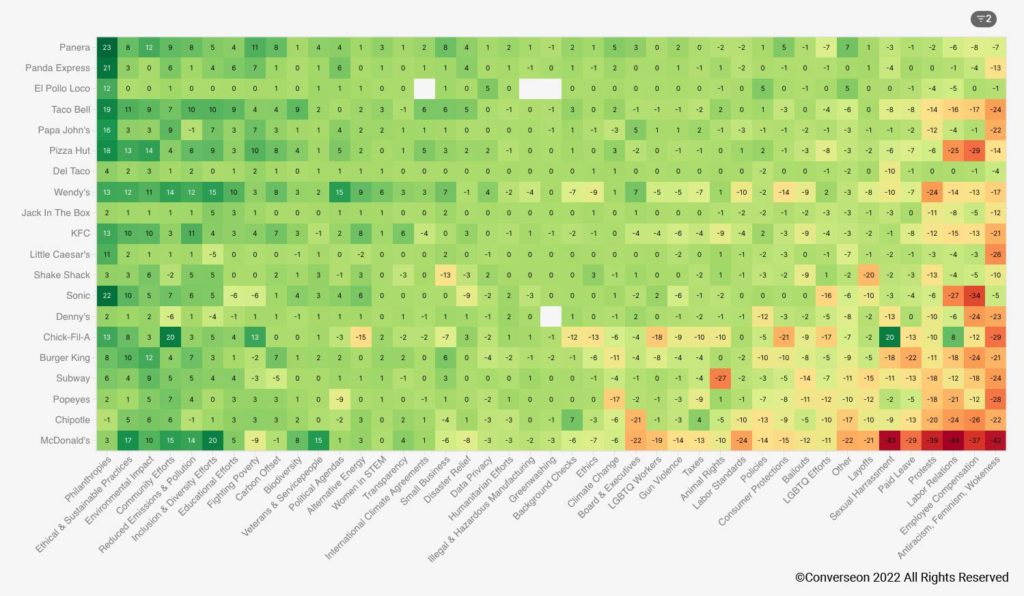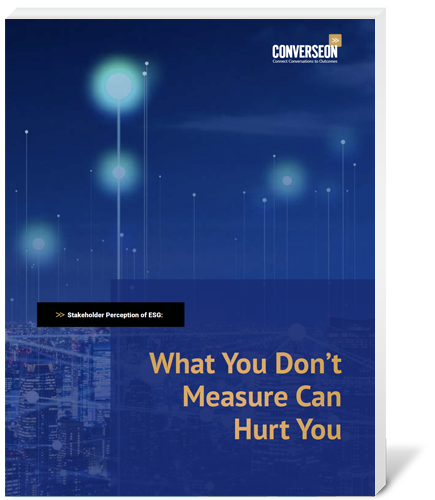The era of conscious consumerism has arrived. Ushered in by the COVID-19 pandemic, a wave of individuals highly focused on environmental action, sustainable efforts, and green initiatives now seek out companies that are putting their advertising promises into real climate action.
What is ESG?
As we know, ESG stands for Environmental, Social, and Governance. Marketing Business News takes this further and states, “ [ESG] refers to the three key factors when measuring the sustainability and ethical impact of an investment in a business or company. Most socially responsible investors check companies out using ESG criteria to screen investments.”
What initiatives are brands taking with ESG?
There are many brands that have stepped up to the plate to reduce their carbon footprint, decrease their electrical consumption, and produce more sustainable products. The following brands continue to step forward in their sustainability efforts …
- For Motor Company – more sustainable fabrics, focus on fuel efficiency, and more
- Disney – zero net direct greenhouse emission policies and reduced electrical consumption
- Fisher Investments – initiatives to help preserve California’s Redwoods
- Hewlett-Packard – reduced greenhouse gas emissions and cut back on toxic substances in products and cartridges
- Johnson & Johnson – waste reduction focus, sustainable products, and packaging methods
While these companies have focused on the “E” in ESG, there is data to support that focusing on social and governance is also an important piece of the larger pie. In 2019, Mckinsey Quarterly released “Five Ways that ESG Creates Value,” and they stated the following “global sustainable investment now tops $30 trillion—up 68 percent since 2014 and tenfold since 2004” These numbers alone show that investment into ESG initiatives isn’t just a fad but truly an investment in the future that is likely to grow.
Converseon’s CEO & Founder, Rob Key, presented at AMEC’s Global Summit on “Connecting Reputation to Business Outcomes,” where he presented data to support why ESG measures are so important to brands today.

Through Converseon’s Predictive Reputation Intelligence System (PRIS), Key presented data to the following: “social justice and equality are the biggest issues [in the QSR industry] but which are the most impactful on revenue?” A heat map pulled from the solution shows that leading QSR brands struggle with labor relations, employee compensation, and wokeness – this is indicated on the far right of the heat map in the red. These “signals” show that these brands need to point focus in these areas through investment and action.
This brand and sub-attribute heat map for QSR puts into perspective all the social justice issues that businesses are facing and helps to order efforts and investments. We can see that , for example, McDonald’s is strong in sustainable practices but struggles the most in employee compensation.
For the QSR industry, investing in environmental initiatives can generate or detract the most from revenue at $140 million a quarter. Coming in second for revenue generation or detraction is social justice action with $110 million a quarter. Through predictions and simulations based on social media data, our sub attribute analysis from the diagnose heat map helps us to determine areas of priority, focus, and action.
Regardless of the industry, investing in the environment shows that it is a good business concept that impacts the bottom line and improves the world we live in.
Our most recent eBook defines and resolves gaps in ESG measurement – you can download your complimentary copy here.
Learn more about our Social ESG Index solution that resolves the critical gap in ESG measurement today.
